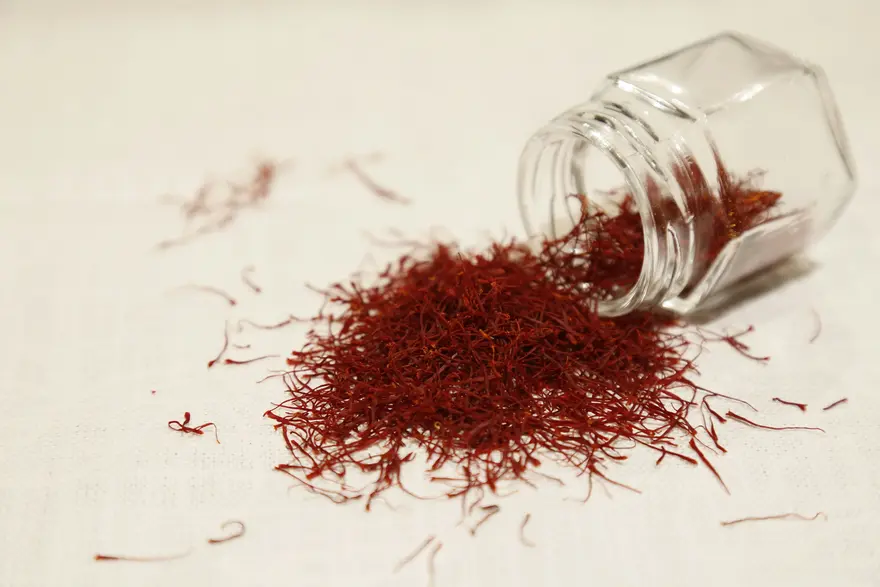Kidney Stone Test - Calculus (Stone) Analysis by Automated FTIR (Kidney (Renal) Calculus)
Also known as: Stone Analysis, Kidney calculus
Kidney Stone Test - Calculus (Stone) Analysis by Automated FTIR Overview
Kidney stones are small, hard deposits that form in the kidneys and can cause intense pain when they pass through the urinary tract.
Fourier-transform infrared spectroscopy (FTIR) spectroscopy is a powerful analytical technique that can be used to determine the chemical composition of a sample by measuring the absorption or transmission of infrared light. In the case of kidney stones, FTIR spectroscopy can be used to analyze the composition of the stone and identify the types of minerals that are present.
Some of the minerals that are commonly found in kidney stones include calcium oxalate, calcium phosphate, uric acid, and struvite. Knowing the composition of the stone can help doctors determine the best course of treatment, as different types of stones require different treatments.
Reasons for Undergoing the Kidney Stone Test
The Kidney Stone Test - Calculus (Stone) Analysis by Automated FTIR is a crucial diagnostic tool for individuals experiencing symptoms related to kidney stones. There are several key reasons to undergo this test:
- Identifying the chemical composition of the kidney stone, which helps determine the type of stone and its potential causes.
- Guiding healthcare providers in planning the most effective treatment approach based on the stone's composition.
- Providing insights for preventing the formation of new stones through lifestyle changes or medication.
- Managing symptoms such as severe pain, nausea, vomiting, blood in the urine, frequent urination, and fever associated with kidney stones.
List of Parameters Considered During the Kidney Stone Test
The Kidney Stone Analysis test utilises Fourier-transform infrared spectroscopy (FTIR) to measure specific parameters that help identify the stone's composition. The key parameters include:
- Infrared Spectrum: The unique "fingerprint" of the stone's molecular vibrations, obtained by measuring the absorption or transmission of infrared light.
- Mineral Composition: The presence of various minerals such as calcium oxalate, calcium phosphate, uric acid, struvite, cystine, and other components.
- Quantification of Components: Qualitative and sometimes quantitative estimates of the stone's components, providing a detailed understanding of its composition.
Home Collection for Kidney Stone Test Near You
Metropolis Healthcare offers a convenient home collection option for the Kidney Stone Test, ensuring comfort and safety for patients. A trained phlebotomist will come to your doorstep to collect the stone sample, ensuring the highest standards of safety and sample handling.
This service eliminates the need to visit a diagnostic center, without compromising on accuracy of the test results. Metropolis Healthcare ensures accurate and timely reports, bringing high-quality diagnostic services right to your home for maximum convenience and reliability.
Stone Analysis, Kidney calculus Price
Metropolis Healthcare is a leading diagnostics centre and pathology lab in India equipped with the latest state-of-the-art technologies that provides the Stone Analysis, Kidney calculus with a clear pricing structure.
The Stone Analysis, Kidney calculus Price in Mumbai is ₹ 1,650 .
We are committed to deliver accurate and quality results from the best labs in India with complete transparency regarding test cost and turnaround time. No matter where you are, we strive to offer patients high-quality service that is affordable and accessible.
Frequently Asked Questions
The Calculus Analysis by automated FTIR (Fourier-transform infrared spectroscopy) is a diagnostic test that is used to identify the chemical composition of a kidney (renal) calculus or stone. The test measures the infrared spectrum of the stone, which allows the identification of the chemical composition of the stone viz. calcium oxalate & phosphate, magnesium ammonium phosphate (struvite), uric acid, cystine and other components
- Identification of Kidney Calculi: Calculus analysis is essential in determining the type of kidney stone that is formed in the human body.
- Treatment Planning: Knowing the type of stone can guide the healthcare provider in deciding on the best course of treatment.
- Prevention of Kidney Stones: Understanding the composition of kidney stones can also help in preventing the formation of new stones. The healthcare provider can recommend lifestyle changes or medications to prevent the recurrence of kidney stones.
This test is recommended for individuals who experience symptoms of kidney stones, such as:
- Severe pain in the back, lower abdomen, or groin
- Nausea and vomiting
- Blood in the urine
- Frequent urge to urinate
- Painful urination
- Fever and chills
The test requires a small sample of the kidney stone, which is typically collected by the urologist or a trained medical professional during a routine medical examination.
No specific preparations are required to be done before the test.
If a Calculus (Stone) Analysis by automated FTIR (Kidney (Renal) calculus) test has been ordered, there are several other laboratory tests that may also be ordered to help diagnose and manage the condition:
- Urinalysis: This test can detect abnormalities in the urine, such as the presence of blood, protein, or infection, which may indicate the presence of kidney stones.
- Complete blood count (CBC): It can help detect infection or inflammation.
- Electrolyte panel: It can help detect dehydration or imbalances that may contribute to the formation of kidney stones.
- Serum creatinine: If the level is high, it may indicate that the kidney stone is causing damage to the kidney.
- 24-hour urine collection: This test can help identify the type of kidney stone and determine the underlying cause.
The Kidney Stone Test - Calculus (Stone) Analysis by Automated FTIR is a diagnostic test that uses Fourier-transform infrared spectroscopy (FTIR) to determine the chemical composition of a kidney stone by analyzing its infrared spectrum.
The Kidney Stone Analysis Test detects the chemical composition of the stone, identifying minerals such as calcium oxalate, calcium phosphate, uric acid, struvite, cystine, and other components.
The reports indicate the specific types and proportions of minerals present in the kidney stone, providing crucial information for determining the best treatment plan and preventive measures to avoid future stone formation.
The benefits include accurate identification of the stone's composition for targeted treatment, guidance for preventing future stones, improved symptom management, and enhanced patient care through detailed information about the stone's composition.
There are no significant risks associated with the test itself, as it involves analysing a small sample of the kidney stone collected during a routine medical examination without requiring invasive procedures.
The test specifically diagnoses the type and composition of kidney stones, which can be associated with conditions like nephrolithiasis (kidney stone disease), helping in managing related conditions.
Medications typically do not affect the results of the Kidney Stone Test, as the test analyses the chemical composition of the stone itself rather than the patient's metabolic or biochemical state.
Typically, fasting is not required before a Kidney Stone Test. However, its essential to follow any specific instructions provided by your healthcare provider or diagnostic center.
The accuracy of the test results can be influenced by the quality of the stone sample and the expertise in interpreting the FTIR spectra, but modern automated systems and comprehensive libraries minimise these risks.
Kidney Stone Test results are usually available after 6 hours, although this may vary depending on the healthcare provider and the time/day when the sample was collected and processed.
Ratings & Reviews (0)
Why Metropolis?
Metropolis has a team of 200 senior pathologists and over 2000 technicians delivering diagnostic solutions in the areas of routine, semi specialty and super specialty domains like Oncology, Neurology, Gynaecology, Nephrology and many more.
We offer a comprehensive range of 4000+ clinical laboratory tests and profiles, which are used for prediction, early detection, diagnostic screening, confirmation and/or monitoring of the disease.





















 WhatsApp
WhatsApp